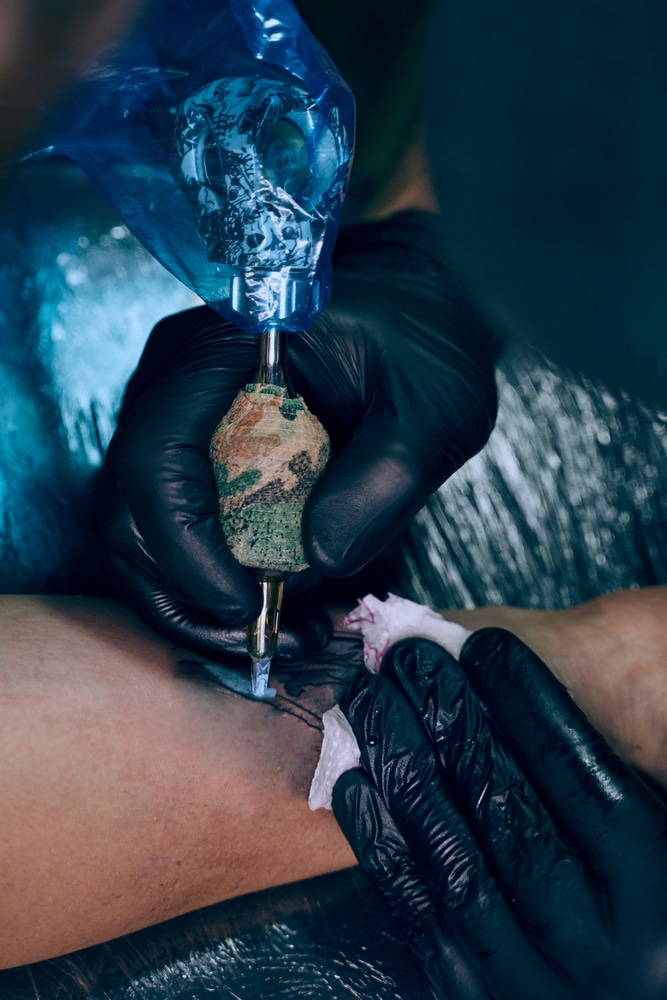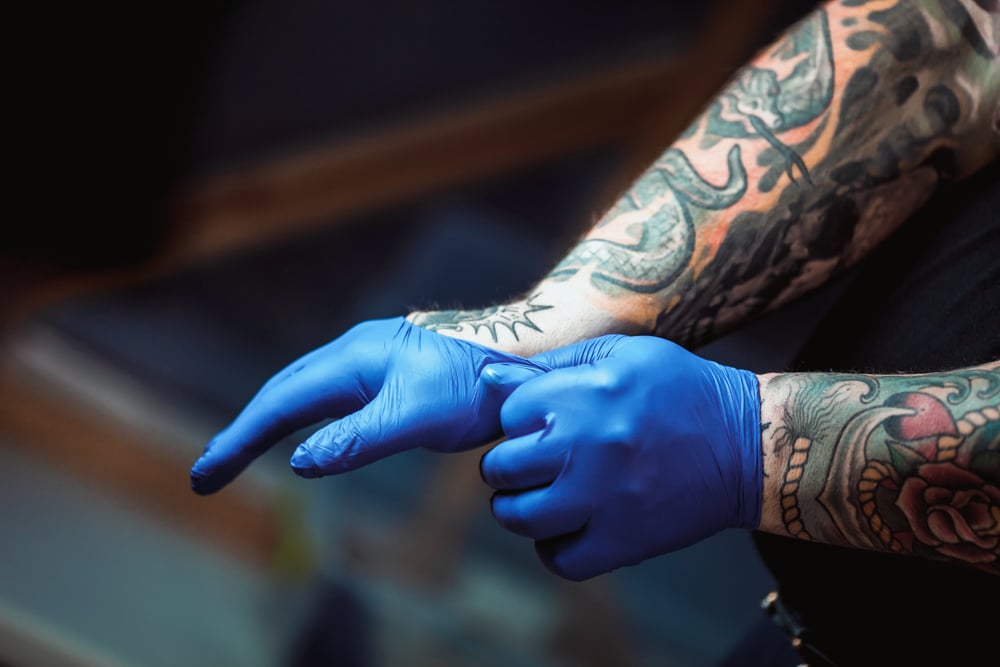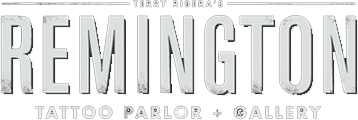
The art of tattooing is a beautiful, time-honored tradition that’s been around for thousands of years. But whether you’re looking to get inked for the first time or you’ve seen more than a few tables in your day, choosing a safe tattoo shop should always be of the utmost importance — especially given the unique health concerns over the past year.
Here’s a few tips to make sure you select a shop that prioritizes client health:
Inquire about training
Typically, tattoo artists complete a training program or apprenticeship. In terms of artistic skill level there is typically no minimum time requirement or certificate to prove mastery; however, in order for a tattoo artist to provide services to the public they must have a license.
While license requirements vary by state, generally they involve coursework that proves the artist not only understands health and safety protocols, but has the knowledge required to operate the necessary equipment. Every state requires tattoo artists (and any professional who may work with potential bloodborne pathogens) to renew their Bloodborne Pathogens certificate every year.
You can review training and laws by state here.
If you’re worried that it will take months for your tattoo to heal, you don’t need to be. While you will have a period of healing time, that period shouldn’t be all that long. Before long, your tattoo will be fully healed, which means it will just be a part of your skin.
Review compliance and safety standards
Because the art of tattooing requires a needle to break the skin, it’s very important to ensure that the tattoo shop you choose closely adheres to sanitation guidelines.
By law tattoo shops must follow OSHA Compliance. This requires all tattoo shops and artists to stick to the following guidelines:
- There must be a separate work area and waiting area
- Tattoo artists must wear gloves, goggles or eyeglasses to avoid unnecessary exchange of body fluids
- Needles must should be kept in sealed containers and are single-use only
- Markers and paper stencils used on a client’s skin must be single-use only
- Pigment trays should not be reused and must be commercially packaged
- Non-disposable devices/instruments must be washed with hot water and soap, and then sterilized in an autoclave
- The work station must be sanitized with an anti-bacterial cleaning solution after each client
- Contaminated instruments and materials must be disposed of in a designated hazardous waste bin to ensure health and safety
For a full list of guidelines, make sure to visit the OSHA website.

Other Questions to ask
- Where the inks come from. Some inks may contain ingredients the FDA doesn’t regulate
- Does the shop have a sterilization machine? If so, what kind?
- What COVID-19 protocols do they have in place and are they authorized to provide services
Use Your Best Judgement
It’s always a good idea to visit the shop and get a feel for the place as well as your artist. While it may be fun to get some ink on impulse to truly protect your health, it’s best to do your research, and to trust your gut. If something seems off or or the shop doesn’t seem to be well-maintained it may be in your best interest to find another shop in your area. Don’t be concerned about taking your time. Afterall, a tattoo is a commitment, so you want to make sure you choose the artist and the shop that’s best for you!

